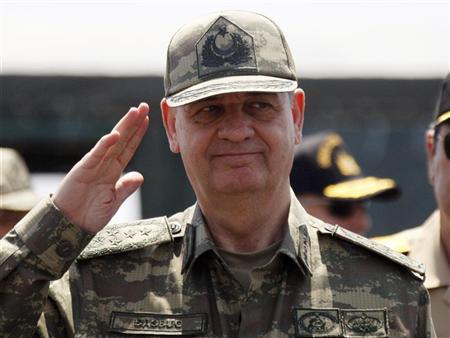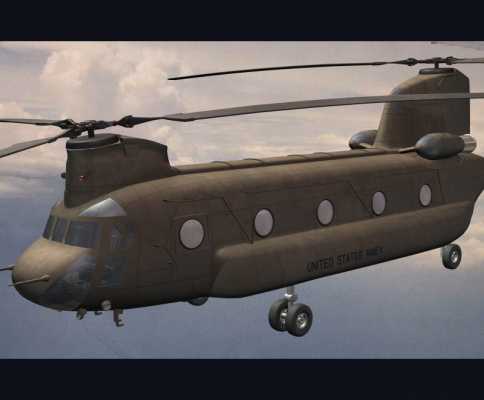By Daren Butler and Can Sezer
ISTANBUL | Thu Jan 5, 2012 6:35pm EST

(Reuters) – A Turkish court ordered a former chief of the powerful armed forces to be remanded in custody pending trial Thursday on charges of attempting to overthrow the government, an unprecedented move likely to exacerbate long-running tensions with the military.
General Ilker Basbug, who retired in 2010, is the highest-ranking officer to be caught up in the so-called Ergenekon case, a long-running crackdown on EU candidate Turkey’s once all-powerful military.
The decision to send Basbug to jail came hours after prominent Turkish journalists on trial over alleged ties to the ultra-nationalist Ergenekon network said the charges against them were politically motivated and “a massacre of justice” in a case that has raised concerns over media freedom in Turkey.
Investigations into Ergenekon have spiraled since they first opened in 2007, and critics accuse Prime Minister Tayyip Erdogan’s government of scaremongering to silence opponents. The government denies any such motives.
Several hundred suspects, including retired senior military officers, academics, lawyers and journalists have been detained in cases related to it.
Basbug is facing preliminary charges of “gang leadership” and seeking to unseat the government by force, state-run Anatolian news agency reported.
“The fact that prosecutors are now touching senior generals is a turning point in the democratization process of Turkey. Many were skeptical that prosecutors would go this far,” said Lale Kemal, a military affairs analyst for the Zaman and Taraf newspapers.
“I would not be surprised if we see some commanders resign (if Basbug is remanded in custody) but I do not expect this to bring serious instability to Turkey,” she said. “The military realizes it can no longer resist the democratization process in Turkey and deceive the public.”
Earlier Basbug, the first former chief of the armed forces to testify as a suspect in a criminal case in a civilian court, arrived at the Istanbul courthouse, looking relaxed in a dark suit, to answer questions from prosecutors in a closed session.
FALL OF THE ‘PASHAS’
Nicknamed pashas, a title dating back to Ottoman times, Turkey’s once untouchable generals have seen their influence decline as Ankara pushes reforms aimed at strengthening civilian rule and winning Turkey’s accession to the European Union.
The current investigation centers on allegations that Turkey’s military set up websites to spread anti-government propaganda to destabilize Turkey.
Turkey’s military, NATO’s second-largest army, has long seen itself as the guarantor of the country’s secular constitution, and had staged three coups between 1960 and 1980 and pressured another government from power in 1997.
The Ergenekon case is seen as part of a power struggle between Erdogan’s ruling AK party, which has roots in a banned Islamist party and swept to power in 2002, and an old secularist establishment including military officers, lawyers, journalists and politicians.
The court hearing the journalists’ case rejected the defendants’ requests late Thursday to be released from custody – a decision which caused shock among around 200 journalists and students waiting outside the court.
The next hearing is scheduled for Jan 23.
Turkey is currently holding nearly 100 members of the news media in jail, one of the highest numbers worldwide, in a crackdown that critics and rights groups say blights Muslim Turkey’s image as a role model for democracy in the Middle East.
“I am here because I am a journalist looking for the truth,” said a defiant Ahmet Sik, who has written books about the infiltration of the police by an Islamist movement led by Fethullah Gulen, a Muslim theologian based in the United States and considered close to parts of the ruling AK Party.
The EU and the United States have raised their concerns over the arrests of journalists in Turkey. But with the economy growing rapidly and Turks tasting unprecedented prosperity and political stability, public outcry has so far been muted.
In Washington, the State Department said it was monitoring the trial and noted that U.S. Secretary of State Hillary Clinton had repeatedly urged Turkish authorities to address concerns about freedom of expression and freedom of the media.
“I don’t think the secretary left the Turkish government in any doubt about where we stand on the press freedom issue,” State Department spokeswoman Victoria Nuland told a news briefing Thursday.
“We have to see whether this trial goes forward in a manner that is consistent with international standards, consistent with international human rights. So that’s the standard by which we’ll judge it,” Nuland said.
Nedim Sener, an award-winning journalist who has written about police negligence in failing to prevent the 2007 murder of prominent Turkish-Armenian journalist Hrant Dink, greeted observers as he entered a packed courtroom saying “Welcome to the theatre” and took a bow.
Looking thinner and with his voice trembling at times, he said the charges against him were baseless.
“I have put my life on the line by questioning Dink’s murder. Our colleagues are in jail for writing news stories.”
If found guilty the two face a maximum of 15 years in prison. Both have denied the charges and say the evidence against them was planted.
Government officials say the journalists are on trial for criminal activities, not because of what they wrote.
(Additional reporting by Simon Cameron-Moore; writing by Ibon Villelabeitia and Daren Butler; edited by Philippa Fletcher)
via Turkish court remands ex-army chief pending trial | Reuters.


